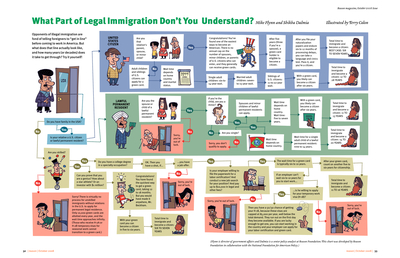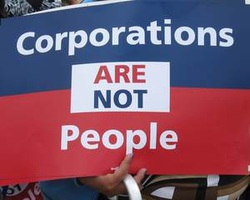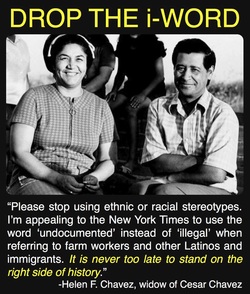The Insightful Immigration Blog
Article II, Sec. 3 of the Constitution provides that the President “shall take Care that the laws be faithfully executed.” That being so, can President Obama grant deferred action for childhood arrivals (DACA) whose presence here represents a violation of US law? Professors Robert Delahunty and John Yoo offer a scholarly and resounding “ No” to this question. In their paper, The Obama Administration, the DREAM Act and the Take Care Clause (hereinafter cited as Delahanty & Yoo). They argue that the President must enforce the removal provisions of the Immigration and Nationality Act. Absent either express or implied authority to the contrary, the Obama Administration has violated its constitutional duty. No presidential prerogative exists that would sustain such non-enforcement nor has the President put forward a cogent excuse that would make his DACA decision constitutionally permissible. Professors Delahunty and Yoo offer up George Washington’s famous reminder in his Proclamation of September 15, 1702 that “it is the particular duty of the Executive ‘to take care that the laws be faithfully executed.” Such a serious charge requires an answer. That is why we write.
We agree with Professors Delahunty and Yoo that President Obama must enforce all provisions of the INA, including the removal sections contained in Section 235. We do not agree, however, that DHS Secretary Napolitano’s June 15, 2012 memorandum, or ICE Director John Morton’s June 17, 2011 directive on prosecutorial discretion, instructed or encouraged ICE officers to violate federal law. At current levels of funding, it is manifestly impossible for ICE to deport most undocumented persons in the United States. Even at the historically high levels of removal under President Obama, some 400,000 per year, this amounts to only 3-4% of the total illegal population. Delahanty & Yoo n.21. That is precisely why the Obama Administration has focused its removal efforts on “identifying and removing criminal aliens, those who pose a threat to public safety and national security, repeat immigration law offenders and other individuals prioritized for removal.” Delahanty & Yoo n. 22, citing Letter from Janet Napolitano, Secretary, Department of Homeland Security, to Senator Richard Dubin (D-Ill.)(Aug. 18, 2011). Far from refusing to enforce the law, President Obama is actually seeking to honor his constitutional obligation by creating a scheme that removes some while deferring the removal of others without granting anyone legal status, something only Congress can do.
Professors Delahanty and Yoo’s characterization of DACA relief as detached, even radical, suffers from a lack of an informed appreciation of the extent to which it has deep roots in existing immigration law. The truth is that deferred action is neither recent nor revolutionary. Widows of US citizens have been granted this benefit. Battered immigrants have sought and obtained refuge there. Never has the size of a vulnerable population been a valid reason to say no. The extension of DACA relief is less a leap into the unknown arising out of a wild, lawless ideology divorced from a proper respect for the Take Care Clause than a sober reaffirmation of an existing tool for remediation in prior emergencies. Professor Delahanty and Yoo conveniently omits any mention of INA Section 103(a)(1), which charges the DHS Secretary with the administration and enforcement of the INA. This implies that the DHS can decide when to and when not to remove an alien. They also fail to consider INA Section 274A(h)(3)(B) which excludes from the definition of “unauthorized alien” any alien “authorized to be so employed …by the Attorney General.” After all, 8 CFR 274a.12(c)(14), which grants employment authorization to one who has received deferred action, has been around for several decades. The only new thing about DACA is that the Secretary Napolitano’s guidance memorandum articulates limiting criteria without endowing deferred action grantees with any legal status, something reserved solely for the Congress. In fact, the Congress has also recognized “deferred action” in Section 202(c)(2) (B)(viii) of the REAL ID Act as a status sufficiently durable to allow the extension of driving license privileges.
Courts are loath to review any non-enforcement decisions taken by federal authorities. See,e.g., Lincoln v. Vigil, 508 U.S. 182, 191-92 (1993); Massachusetts v. EPA, 127 S. Ct. 138, 1459 (2007). It is up to DHS, rather than to any individual, to decide when, or whether, to initiate any enforcement campaign. Heckler v. Chaney, 470 US 821, 835 (1985). During the last Supreme Court term, Arizona v. United States, 132 S.Ct. 2492, 2499 (2012) articulated the true reason why: “(a) principal feature of the removal system is the broad discretion exercised by immigration officials…Federal officials, as an initial matter, must decide whether it makes sense to pursue removal at all…”
Professors Delahanty and Yoo do not feel constrained by the wide deference that has traditionally characterized judicial responses to executive interpretation of the INA. Under the oft-quoted Chevron doctrine that the Supreme Court announced in Chevron USA, Inc. v. Natural Resources Defense Council, Inc., 467 US 837(1984), federal courts will pay deference to the regulatory interpretation of the agency charged with executing the laws of the United States when there is ambiguity in the statute. The courts will intrude only when the agency’s interpretation is manifestly irrational or clearly erroneous. Similarly, the Supreme Court in Nat’l Cable & Telecomm. Ass’n v. Brand X Internet Servs., 545 US 967 ( 2005),while affirming Chevron, held that, if there is an ambiguous statute requiring agency deference under Chevron, the agency’s understanding will also trump a judicial exegesis of the same statute. Surely the “body of experience” and the “informed judgment” that DHS brings to INA § 103 provide its interpretations with “ the power to persuade.” Skidmore v. Swift& Co., 323 US 134,140(1944). As Justice Elena Kagan famously noted when she served as the Dean of the Harvard Law School, the increasingly vigorous resort to federal regulation as a tool for policy transformation by all Presidents since Ronald Reagan has made “ the regulatory activities of the executive branch agencies more and more an extension of the President’s own policy and political agenda.” Elena Kagan, Presidential Administration, 114 Harv.L.Rev. 2245, 2246 (2001). Indeed, the very notion of Chevron-deference is “premised on the theory that a statute’s ambiguity constitutes an implicit delegation from Congress to the agency to fill in the statutory gap.” FDA v Brown & Williamson Tobacco Corp., 529 US 120, 159 ( 2000). That is precisely what the President and DHS have done with respect to their power to enforce the immigration laws.
This is precisely why 100 law professors argued that the President had the discretionary authority to extend such relief, which Professors Delahunty and Yoo have acknowledged in their paper:
| Through no statutes or regulations delineate deferred action in specific terms, the U.S. Supreme Court has made clear that decisions to initiate or terminate enforcement proceedings fall squarely within the authority of the Executive. In the immigration context, the Executive Branch has exercised its general enforcement authority to grant deferred action since at least 1971 Delahanty & Yoo n. 38. |
| Congress …may not have expressly delegated authority to…fill a particular gap. Yet,it can still be apparent from the agency’s generally conferred authority that Congress will expect the agency to speak with the force of law when it addresses ambiguity in the statute…even one about which Congress did not actually have an intent as to a particular result. United States v. Mead, 533 U.S. 218, 229(2001) |
Notwithstanding our rebuttal, the deep scholarship and sincere reservations voiced by Professors Delahanty and Yoo must not be cavalierly ignored nor summarily dismissed. Indeed, they are a powerful justification of the need for comprehensive immigration reform. Only Congress can solve this problem, even though we have shown that the President did have authority to roll out DACA. The nation waits.







 RSS Feed
RSS Feed
